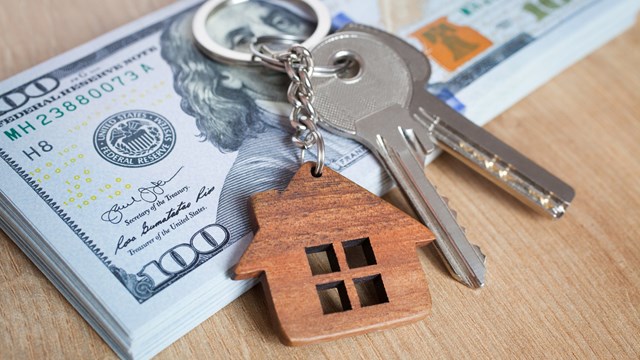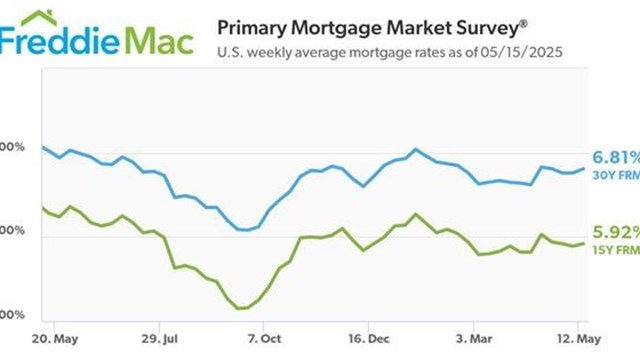They say there's no such thing as a bad question - and when it comes to buying or selling a condo or co-op, asking the right questions of your broker, both before you choose one and afterwards, can help make the process run a whole lot smoother.
Asking the right questions can help insure that your relationship with your broker will be a productive one and that you'll find the best apartment to suit your needs. So here are some questions and answers that real estate professionals throughout the city advise prospective buyers and sellers to ask their chosen brokers.
OK, maybe you don't want to be this blunt, but a buyer-realtor relationship is an important one and you need to know the realtor will work well with you.
"You have to have a sense of comfort and trust with the broker," says Dottie Herman, chief executive officer of Prudential Douglas Elliman, one of the biggest brokerages in the city. "I don't think all brokers are the same. You should interview a few"¦ You can always ask their background and where they've sold, but just as important is how you feel with them."
And it's not necessarily a matter of a broker being good or bad at their jobs. A broker who worked superbly with one buyer may not click with you.
"Someone could be a great broker and they have a very strong personality," says Herman. "Some people like that, and some don't. Some specialize in certain areas. You shouldn't think everything is the same and that every broker is the same, because that's not true at all." Will I be working with you or an assistant?
It's easier to forge that all-important broker-client relationship when you know you'll be working closely with that specific person. Just about any realtor has assistants and co-workers who all help each other out, but some rely on help more than others. That may be fine with you, but you should find out what the situation will be before committing to the arrangement.
"Everybody has these teams now," says Judy Maysles, a salesperson with Coldwell Banker Hunt Kennedy, who works in Manhattan. "I understand that in this market, there are times where you have to get somebody out there, and I do have people, and we all cover for each other. But I think it's really important to have that one person you can trust and call."
Before going forth with a purchase, you obviously want to find out if the building has any significant assessments planned or if there's any potential for one in the near future - and that's partly your broker's job. If there are large projects in the works, this could result in an assessment on top of the maintenance fee.
"You need to ask if there's any huge work to be done, and if there is, what is the time schedule, and what will be the cost be in addition to maintenance fees?" says Deborah Gimelson of Coldwell Banker. Sometimes, prospective buyers find out about something just before closing and that can result in complications, so ask early. "And just because the building is due for a project doesn't mean a buyer shouldn't buy," says Gimelson. "Every building is going to need work eventually. It's a matter of being able to afford it, and whether or not it's worth the investment."
How should I prioritize my wants?
All buyers come into the purchasing process with lists of what they want in an apartment, but it's a list that has to be flexible. Ultimately you may have to choose a few key desires in a home and sacrifice others.
"It doesn't matter whether you're paying $300,000, $3 million or $30 million; you're not going to get everything you want," says Harriet Kaufman, a managing director at Warburg Realty Partnership.
"Everything usually shows itself during the process, because the client may not get the view, but if the apartment has good light, that will suffice. Or if they want huge rooms, they'll give up some light. It's a process. You have to look around, and that helps people prioritize what they really want."
"I tell people to start with a list of everything they want," says Maysles. "Then the first time I take a buyer out, I show them different architecture: Postwar, prewar, a Victorian building, a building with bathrooms in the bedroom, an apartment with lots of light, one with no light. Then you start to focus on what their real list is."
There's a lot to know when it comes to boards, and a good broker should be able to give you an idea of how easy or difficult the board is in a specific building you're interested in buying into. Since boards can change, there are no guarantees; today's easygoing board could become difficult after you've bought your apartment and it's too late to change your mind. But just to get into the building, you have to satisfy the board's financial requirements.
"A good broker should have a very good sense of what the building wants," says Kaufman. The broker should also be able to provide input on how to balance your income and liquidity based on what the building wants. If you have a high income for example, you may want to finance as much as possible in order to keep as many assets as possible because boards require not only down payments, but also money left over.
"The idea is that these are shares of a private corporation and if someone can't meet his or her obligation and loses a job, then those obligations fall upon the other shareholders," Kaufman says. "So they want to make sure you're liquid enough in case your income stream stops so that you can support the apartment."
It's also good to get an idea as to whether or not you're a good fit for the board. "You have to know the boards by reputation," Kaufman says. "Except for the nitty-gritty of the board package, a managing agent can only tell you what the board requires in terms of paperwork and documentation of assets. You really need a broker to tell you if this or that board is receptive to young families, or it's a very social board or it's not social at all."
All of this is particularly important in today's very strong market, because boards can afford to be picky.
"They don't have to worry so much about finding a shareholder," says Gimelson. "They figure, "˜If we don't like this person and turn him down, there are about five people waiting.' That's not always the case, but it is more the case now because the market is so strong and boards feel they're in a position to be picky."
And it isn't just out of snobbishness, says Kaufman. "Boards want to make sure owners can meet financial obligations, especially with memories of people losing their savings and their retirement because of the stock market crash a few years back and scandals like Enron."
Buyers have lots of concerns, like getting an apartment they like at a price they can afford in a neighborhood they love. Sellers, by contrast, really only have one concern: getting the price they want from a qualified buyer. However, there are some questions a seller can ask a broker to make the sale of a home as painless as possible.
This is really something you have to figure out for yourself, but after interviewing a few brokers, you should be confident that you can work with him or her during what is certain to be a very intense process. People selling an apartment are in constant contact with their brokers, getting calls about interested buyers who want to see the apartment, updates on how interested prospective buyers are, and what offers are on the table.
"Moving is one of the top 10 stressors, so you have to ask yourself a few things when interviewing brokers," Maysles says. "Is this a person I want to be getting phone calls from? Am I going to feel comfortable calling this person? Do I think I can have a relationship and a rapport with this person? In the end, we all do the same thing. It's about style; we're all on the websites, we all market; we do everything. The real question that the seller has to ask themselves is, "˜is this the person I want to work with for the next 10 weeks?'"
Fewer and fewer people are looking through their newspapers for leads on houses. The Web allows people to search for a home, specifying criteria such as number of rooms, amenities and pricing. You can even get a virtual tour of a home, and that's something a few inches of type in a paper just can't offer.
"Sellers should make sure their broker has incredible access to the Web," says Gimelson,. "Literally, 70 to 75 percent of our business starts with the Web."
You want to know that your property will be listed on major sites, like Realtor.com. You should be leery of questionable sites, though. Gimelson says that hasn't been a major issue in the industry so far. "We haven't had too many problems along that line yet. Realtor.com is really the most recognized national website."
Today's market can make sellers greedy - you hear about an apartment in your building that sold at a great price and the impulse can be to ask for more. But Kaufman says there's an art to setting asking prices.
"This is a very strong market, and the seller needs a good broker who understands the market," she says. "A seller has to price an apartment correctly. And if you do and people perceive it as a good value, you are very likely to go into overbid."
As an example, Kaufman mentioned an apartment she listed exclusively and put on the market on a Thursday at what she perceived to be a good price. By Friday, they had received four offers that were significantly over the bid.
But Kaufman says there are a lot of apartments that are priced too high and those have difficulty selling.
"You have to find a professional and trust the professional, and not everyone does that, because there are a lot of overpriced apartments out there."
When it comes right down to it, the New York City real estate market can be a very fast, very confusing place; and with prices as high as they are, it's also taken on the flavor of a team sport, with rules, regulations, spectators, and referees. Like any other game, it takes time to learn the ropes and become an effective player. By asking your broker to be your coach and steer you through the process of buying or selling a co-op or condo apartment, you'll be set up for the score.






Leave a Comment